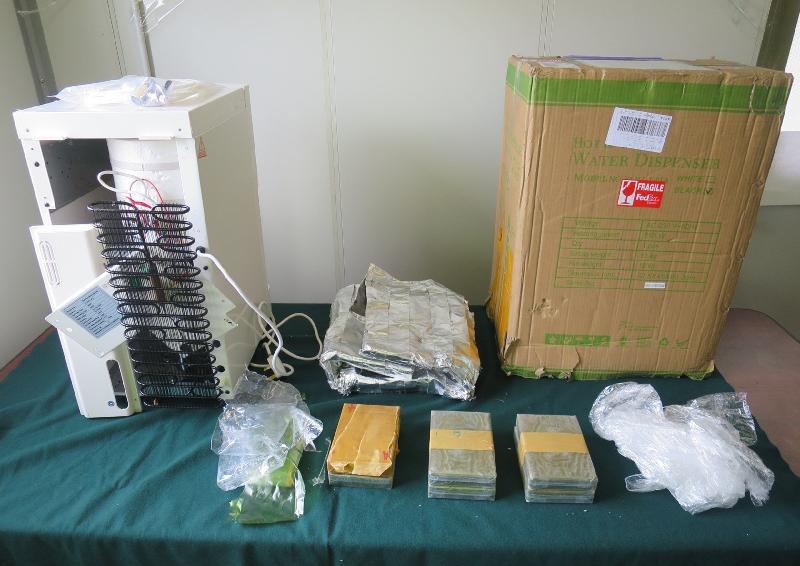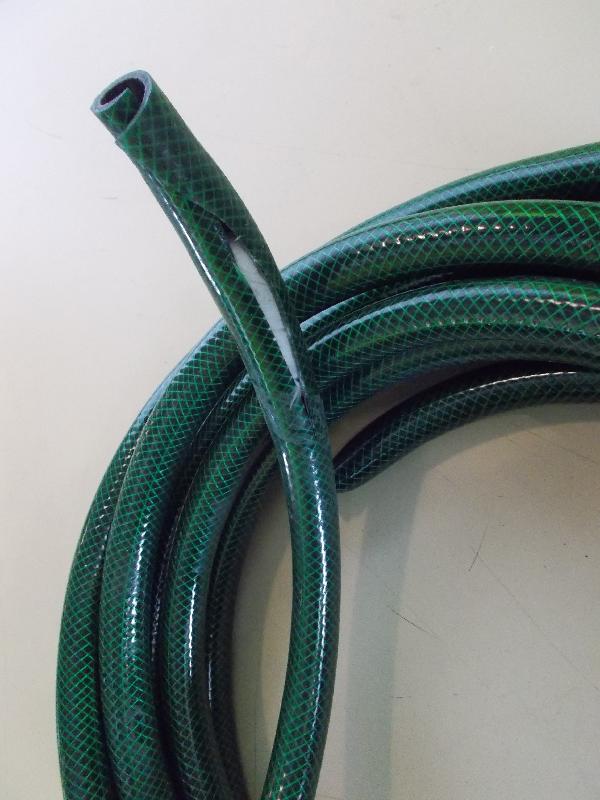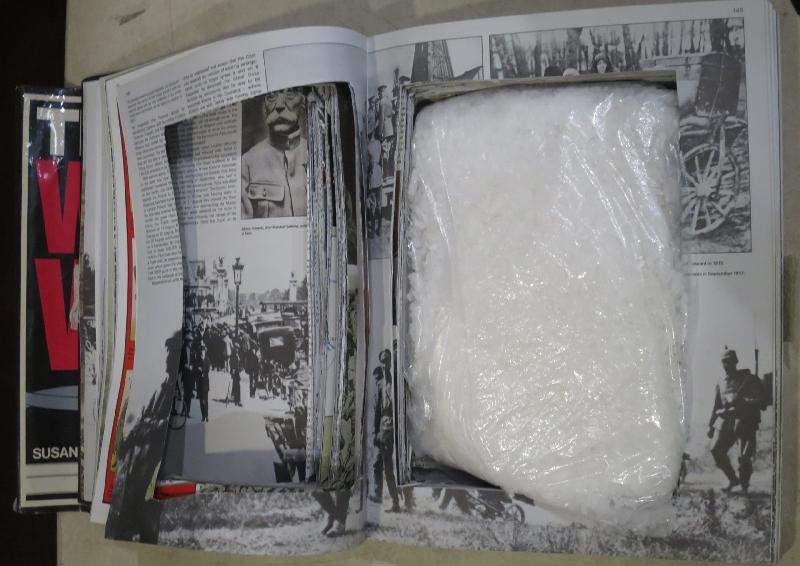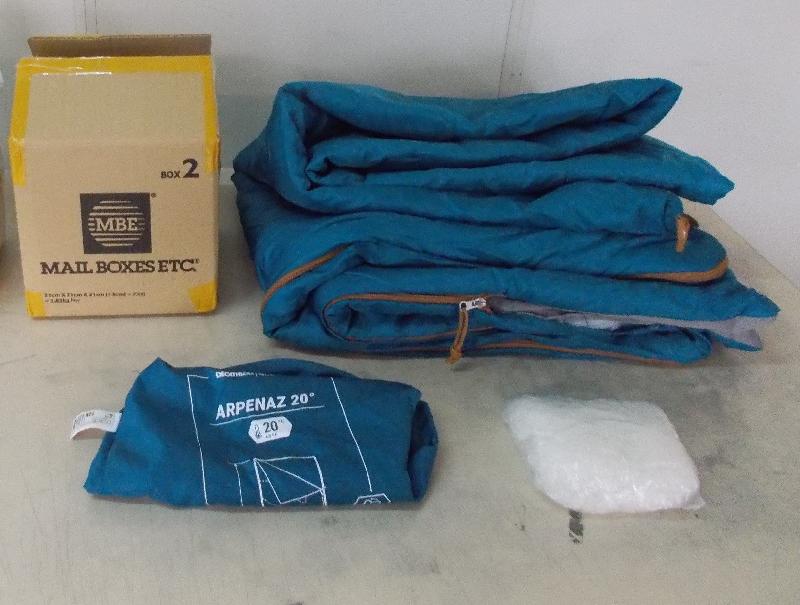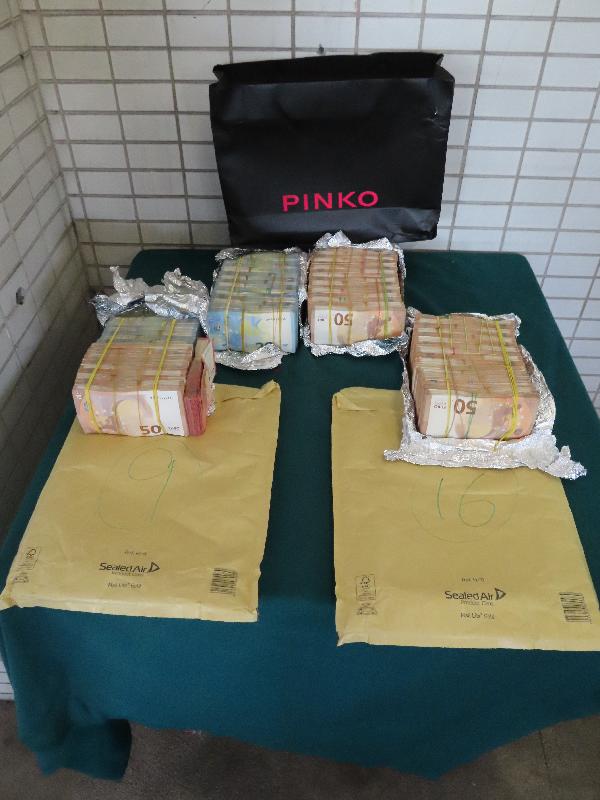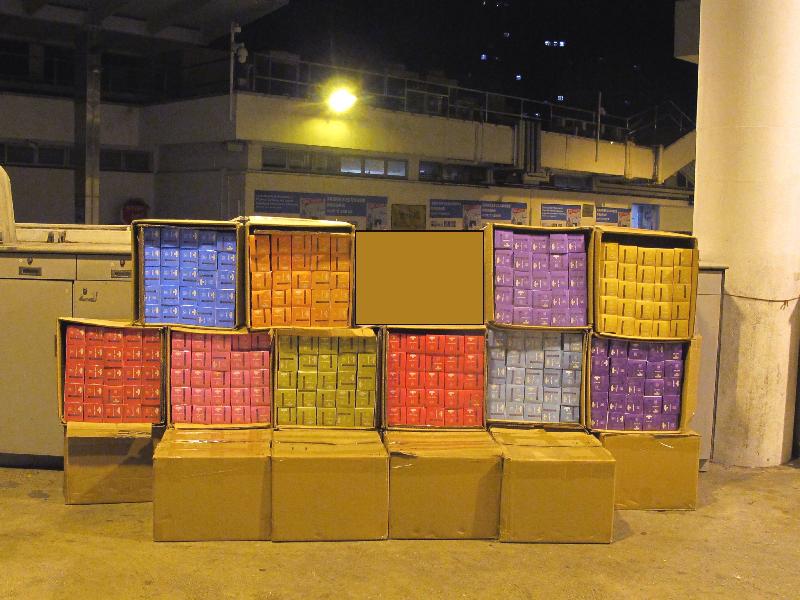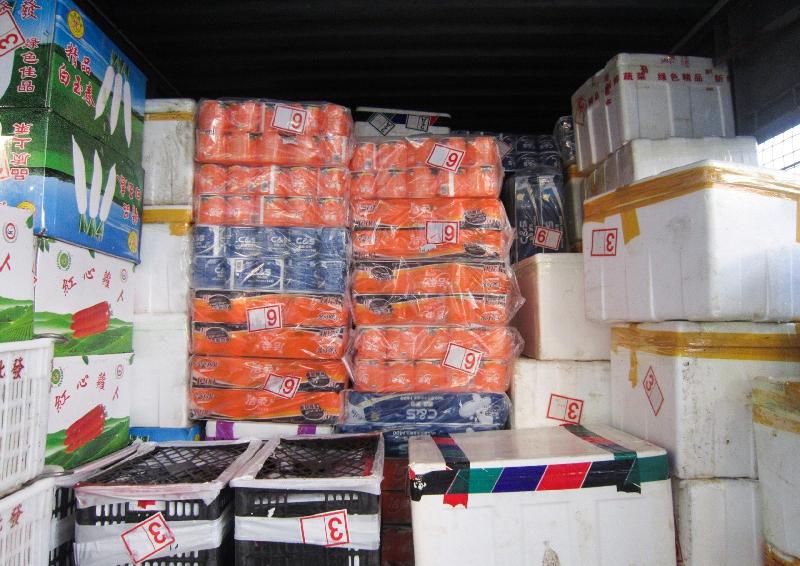Hong Kong Customs steps up enforcement to combat smuggling activities by cross-boundary goods vehicles during COVID-19 (with photos)
Hong Kong Customs mounted a five-month special operation codenamed "Wave II" from January 25 to yesterday (June 25) to combat smuggling of contraband items by cross-boundary goods vehicles in view of the drastic drop of the cross-boundary passenger flow between the Mainland and Hong Kong amid the COVID-19 epidemic. A variety of smuggled goods and prohibited items worth over $66 million were seized, with arrests of 196 people.
During the operation, Customs officers detected a total of 212 smuggling cases involving cross-boundary goods vehicles at all land boundary control points, while various types of suspected smuggled goods and prohibited items were seized. Seizures included about 59 kilograms of dangerous drugs (mainly cocaine, methamphetamine, heroin and ketamine), over 1.5 million sticks of duty-not-paid cigarettes and cigars, about 10 000 bottles of nicotine-containing smoke oil for electronic cigarettes without a valid import licence, a large batch of counterfeit items (including clothes, leather goods, shoes, watches and mobile phone accessories) and infringing movie optical discs. Also, about 400kg of rice imported without a licence, about 49 000 items of health supplements bearing false origins of production and about 4 000 rolls of unmanifested toilet paper were seized.
Apart from mixing the smuggled goods with general goods or concealing prohibited articles in hidden spaces of the goods vehicles, smugglers also adopted ever-changing concealment methods to evade Customs' detection and action. Concealments of dangerous drugs using a broad range of implements, such as hollow metallic mechanical parts, water dispensers, cooking stoves and plastic water hoses were revealed during the special operation. As well, some smugglers concealed dangerous drugs inside hollowed books, bound the drugs inside false compartments of carton boxes or tucked the drugs into camping sleeping bags and cushions.
After follow-up investigations of the above-mentioned cases, Customs officers further seized about 3.5 grams of pharmaceutical products suspected of containing Part 1 poison, about 5 000 sticks of suspected duty-not-paid cigarettes and about 47 000 items of suspected infringing goods.
Moreover, Customs detected for the first time a smuggling case of a large amount of cash via express parcel across the land boundary. A batch of Euro banknotes valued at about HK$2.1 million was seized. An investigation is underway on whether the cash without declaration involved in the case is related to other illegal or money laundering activities.
Customs reiterates that the department has all along striven to combat the inflow of prohibited goods by strategies of risk-profiling and intelligence analysis. In view of the possible changes of smuggling trends during the COVID-19 pandemic, specific strategies targeting smuggling activities by cross-boundary goods vehicles have been adopted during the "Wave II" operation and significant results have been achieved. The estimated market value of all the seizures has surpassed $66 million and arrests of 188 men and eight women aged between 24 and 70 were made.
In order to strengthen efforts against different kinds of cross-boundary criminal activities, Customs will continue its special enforcement operations from time to time and will make timely adjustments to the detection strategies.
Members of the public may report any suspected cross-boundary illegal activities to Customs' 24-hour hotline 2545 6182 or its dedicated crime-reporting email (crimereport@customs.gov.hk).
